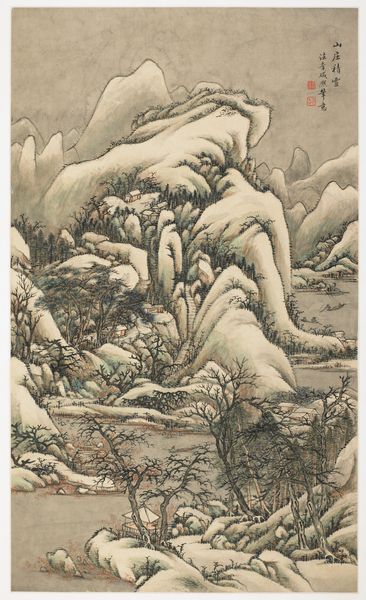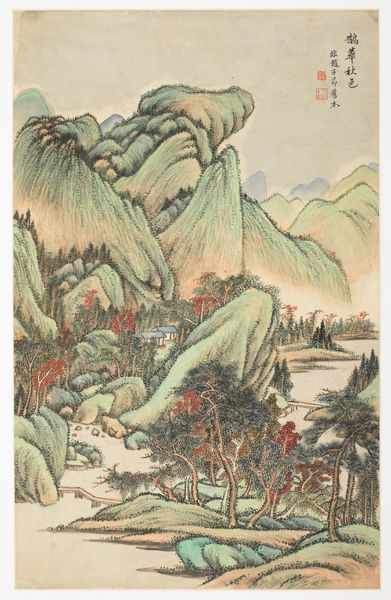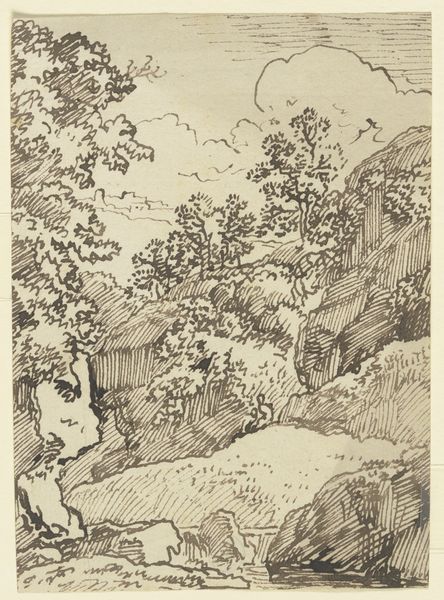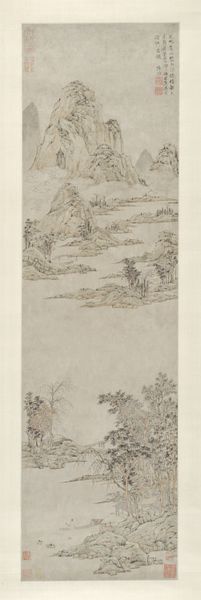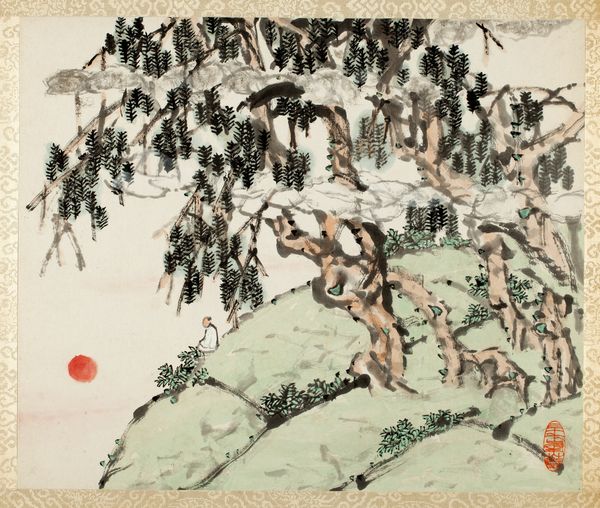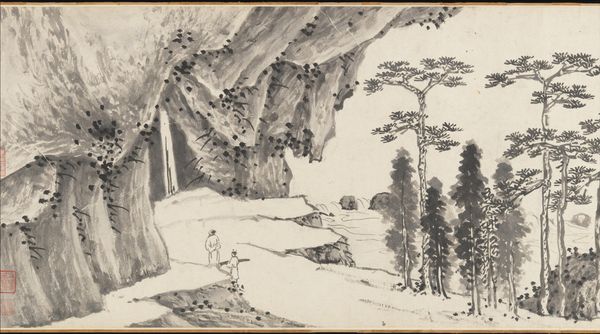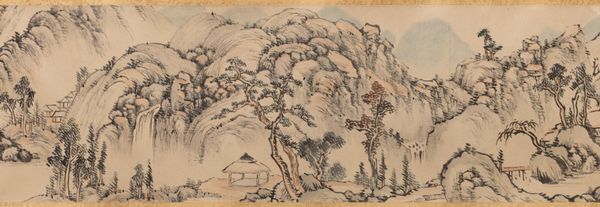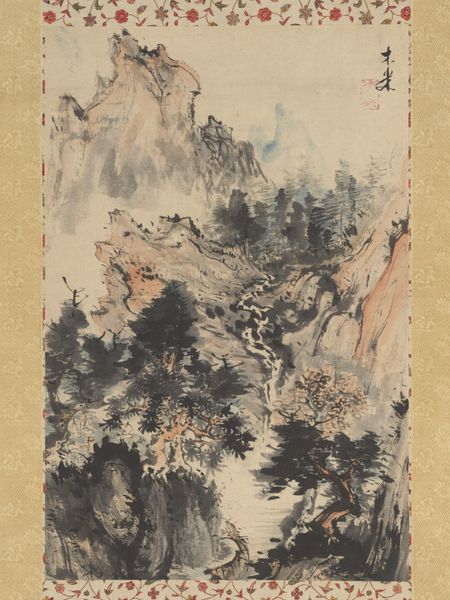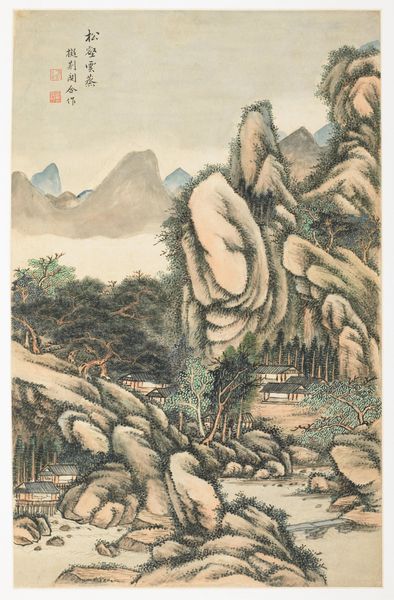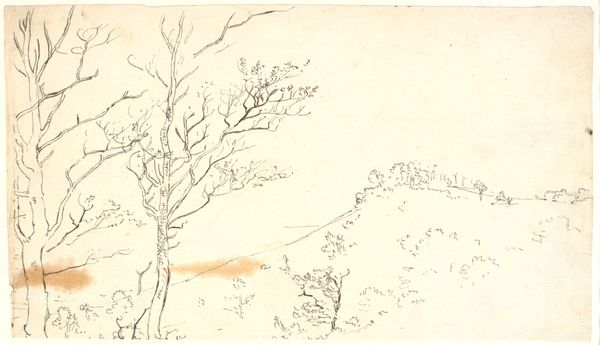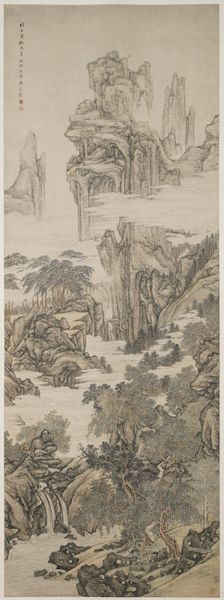
tempera, painting, paper, ink, woodcut
#
ink painting
#
tempera
#
painting
#
asian-art
#
landscape
#
paper
#
ink
#
mountain
#
woodcut
Dimensions: 61 1/4 x 17 3/16 in. (155.6 x 43.7 cm)
Copyright: Public Domain
Editor: This ink and tempera painting is called “Landscape” by Wu Xizai, created in 1858. It feels so tranquil, with its muted tones and almost dreamlike quality. I’m curious, what cultural currents were influencing landscape painting at the time, and how does this piece fit within them? Curator: That’s a wonderful question. The mid-19th century in China was a time of immense social and political upheaval. The Taiping Rebellion was raging, and there was increasing Western influence. Wu Xizai's landscapes, while seemingly traditional, often served as a form of subtle commentary, a yearning for a more stable and harmonious past. Notice the detail – it harkens back to literati painting traditions. The art became about an escape from the reality. What sort of statement might the solitary boat, tucked way into the composition, make at the time? Editor: It could symbolize a retreat from society or perhaps even a sense of isolation amidst the chaos. I guess I hadn’t really thought about the sociopolitical context when I first looked at the painting; I was drawn more to the peaceful imagery. Curator: Exactly! It is that tension between personal desire for serenity and awareness of turmoil that creates deeper engagement. This artwork provides an idealized landscape with these deeper meanings – think of landscape painting at the time as a sort of "cultural refuge". How would showing something like this in a gallery space during the Qing dynasty either solidify that "cultural refuge", or cause dissidence? Editor: So it’s not just about aesthetic beauty but also about its role in shaping and reflecting cultural values during a turbulent period. I’ll definitely look at other art pieces from that period with new eyes now. Curator: Precisely. Seeing art through a historical and social lens helps us to understand not only the artwork itself, but also the culture from which it emerged. Thanks for this opportunity to explore it!
Comments
No comments
Be the first to comment and join the conversation on the ultimate creative platform.
